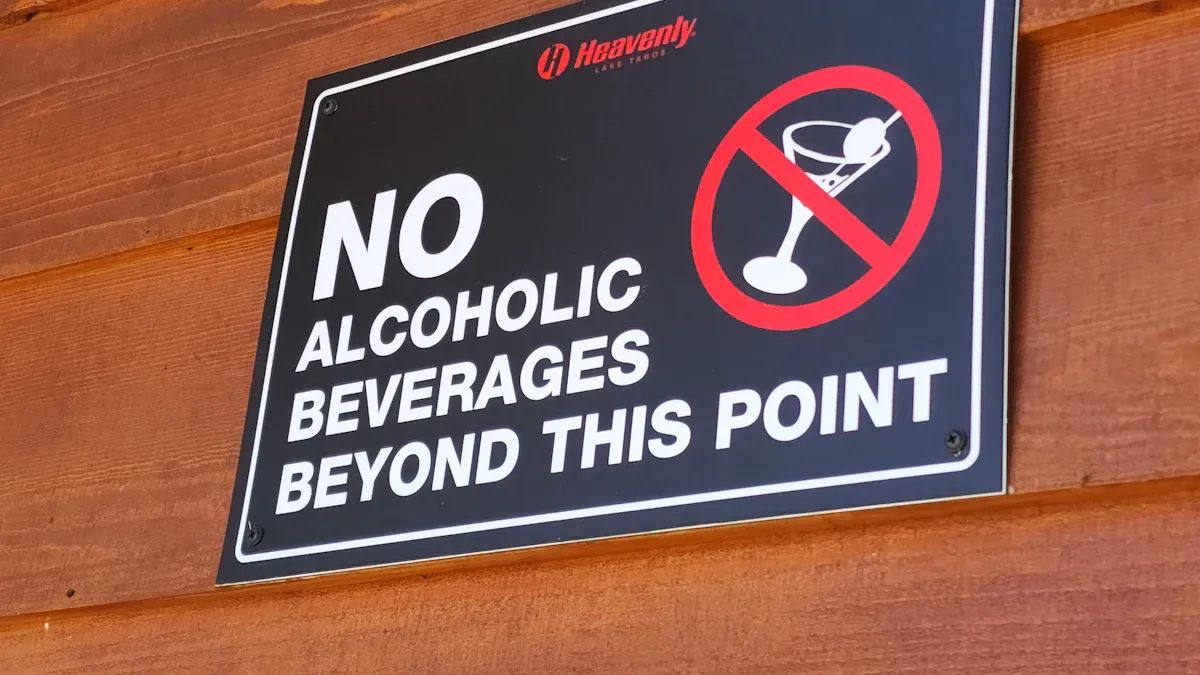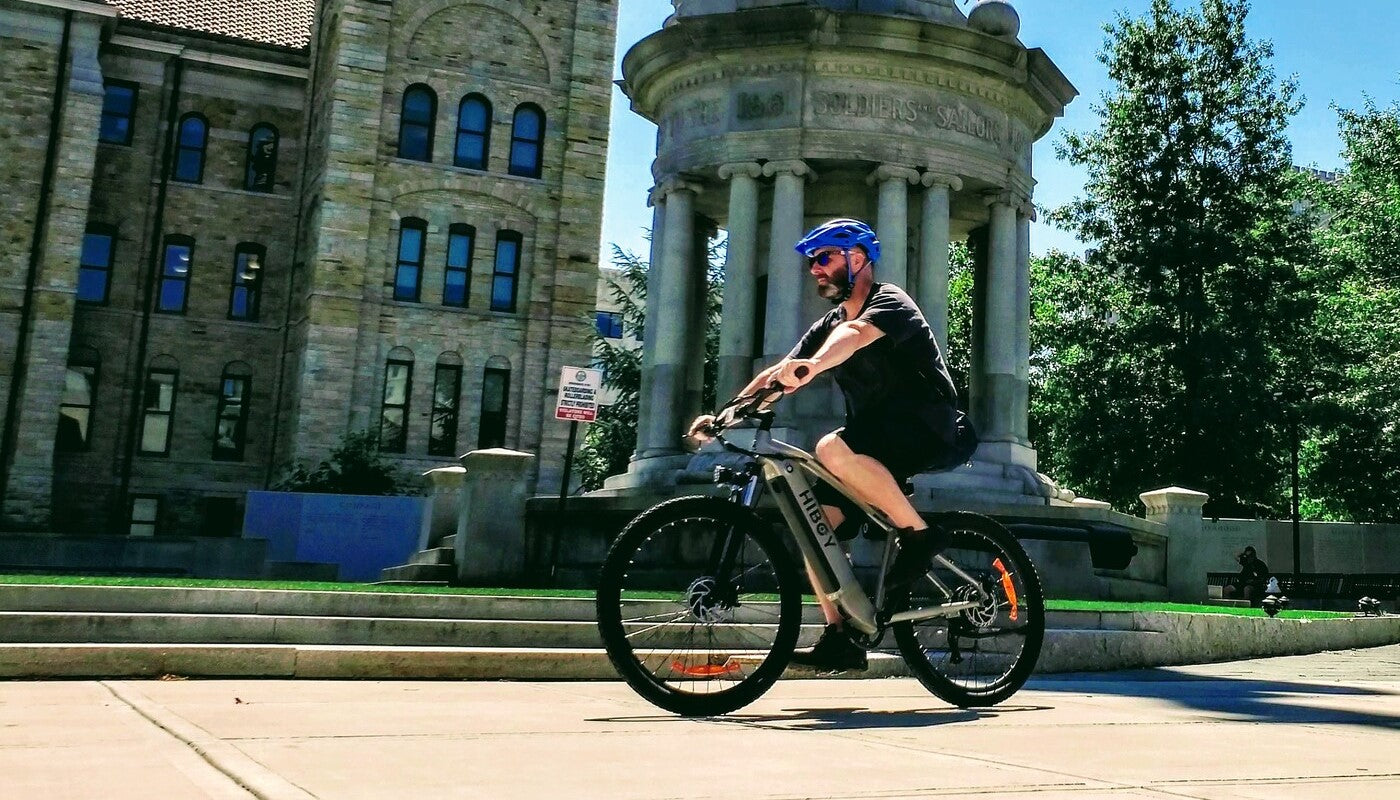You might wonder if you can get a DUI on a bike. The answer depends on where you live and what type of bike you ride. Traditional bicycles and motorized or electric bikes often fall under different rules. Many people think biking under the influence is less risky, but studies show about one third of cyclists admit to drinking and biking. Laws in Canada and the US treat riding under the influence differently, so you should always check local rules before you ride.
Key Takeaways
-
Laws about DUI on bikes vary by location and bike type; motorized bikes often face DUI charges, while traditional bikes usually do not.
-
Riding a bike under the influence can lead to fines, license suspension, or jail time, especially with e-bikes or in states like California and Florida.
-
Even if DUI laws do not apply, you can still get charged with public intoxication or reckless cycling for riding drunk.
-
Riding under the influence is dangerous; it lowers your balance and reaction time, increasing the risk of crashes and injuries.
-
Always choose safety: wear a helmet, know your local laws, and never ride any bike after drinking or using drugs.
DUI on a Bike: The Basics
Legal Definitions
You need to know how the law defines a DUI on a bike. In many places, DUI laws were first made for cars and trucks. Some states and provinces now include bicycles and e-bikes. The main difference comes from how the law defines a "vehicle." In some areas, only motor vehicles count. In others, any vehicle, even a bicycle, can lead to a DUI charge if you ride while impaired.
Tip: Always check your local laws before you ride. The rules can change from one city or state to another.
Here is a quick look at how some places define DUI on a bicycle:
|
Jurisdiction |
Bicycle DUI Law Applies? |
Notes |
|---|---|---|
|
California |
Yes |
Bicycles included under DUI laws; fines and license suspension possible |
|
Nevada |
No |
Only motor vehicles; impaired cycling may lead to public intoxication charges |
|
Florida |
Yes |
Both motorized and non-motorized bicycles included |
|
Canada |
Sometimes |
E-bikes often included; regular bikes sometimes exempt, varies by province |
Traditional Bicycles
Traditional bicycles run only on human power. Most states and provinces do not treat these bikes as motor vehicles. For example, Arizona law says DUI charges only apply to motorized vehicles, so you usually will not get a DUI on a bike that has no motor. Some places, like California and Florida, have special rules that include bicycles under DUI laws. In these places, you can face fines, license suspension, or even jail if you ride a bike while drunk or high. Even if DUI laws do not apply, you could still get in trouble for public intoxication or reckless behavior.
-
Traditional bicycles are often excluded from DUI laws because they have no motor.
-
Some states have special DUI laws for bicycles.
-
You may still face other charges if you ride drunk, even if DUI laws do not apply.
Motorized and E-Bikes
Motorized and electric bikes have a motor, so many places treat them like cars or motorcycles. This means DUI laws often apply to these bikes. For example, in California, Florida, and New York, you can get the same penalties for a DUI on a bike with a motor as you would for a car. These penalties can include fines, license suspension, and even jail time. Canada also applies DUI laws to e-bikes in many provinces. The presence of a motor is the key reason for this difference.
-
DUI laws for e-bikes and motorized bikes differ by state and province.
-
Penalties can include fines, license suspension, jail time, and community service.
-
Even if you do not need a license to ride, you can still face DUI charges on a motorized bike.
Note: The safest choice is to never ride any bike after drinking or using drugs. DUI on a bike can have serious legal and safety consequences.
DUI on a Bicycle: Laws and Penalties
Canada
In Canada, you usually do not face DUI laws when riding a traditional bicycle. The law does not treat regular bikes as motor vehicles. You can ride a regular bike without worrying about impaired driving rules, unless you cause an accident or injury. However, if you ride a motorized bike or an e-bike, the law changes. Canadian impaired driving rules treat these bikes like cars or motorcycles. If you ride a motorized bike under the influence, you can face the same DUI penalties as a driver. These penalties may include fines, license suspension, or even jail time.
-
Traditional bicycles are not subject to DUI laws because they do not have a motor.
-
Motorized bikes, e-bikes, and scooters fall under impaired driving rules.
-
If you cause harm while riding any bike under the influence, you may still face charges.
If you feel unsure about your situation, you should seek legal assistance for dui charges from experienced criminal lawyers. They can help you understand your rights and the possible outcomes.
Qualitative research shows that police often find it hard to enforce DUI laws for non-motorized vehicles. Officers may not focus on cyclists because they see less risk or have limited resources. This can lead to weak deterrence and gaps in enforcement. Legal experts in Canada agree that the law needs clear rules and better education to keep everyone safe.
United States
In the United States, DUI laws for bicycles vary by state. Some states include bicycles in their DUI laws, while others do not. For example, California and Florida treat bicycles like other vehicles. You can get a DUI for riding a bike under the influence in these states. Other states, such as Nevada, only apply DUI laws to motor vehicles. In those places, you may not face DUI penalties for biking drunk, but you could still get other charges.
A research study looked at alcohol and traffic safety laws across all U.S. states. The study found big differences in how states handle DUI laws, including those for bicycles. Some states use terms like OUI, OVI, or DWI, each with its own meaning. Ohio and Arizona include bicycles in their DUI laws. Hawaii covers many types of intoxication, not just alcohol. Penalties and enforcement also change from state to state. Some states have strict blood alcohol limits and harsh penalties, while others do not.
-
Always check your state’s laws before biking after drinking.
-
Some states have zero-tolerance policies for underage riders.
-
Penalties can include fines, jail time, and license suspension.
Many states do not have uniform rules for biking-related offences. You should talk to experienced criminal lawyers if you face charges, as they know the local laws best.
Research shows that stricter DUI penalties can change behavior and reduce drunk-driving crashes. However, enforcement for bicycles is often weaker than for cars. This makes it harder to measure the true impact of these laws.
Alternative Charges
Even if DUI laws do not apply to your bike, you can still face other charges. In Canada, police may charge you with public intoxication if you ride a bike while drunk in public. You can also get tickets for careless or reckless cycling. These charges can lead to fines or other penalties, especially if you break traffic rules or cause an accident.
In the United States, police can charge you with public intoxication, disorderly conduct, or reckless operation if you ride a bike while impaired. These biking-related offences may not carry the same penalties as a DUI, but they can still affect your record and safety.
-
Public intoxication laws apply to cyclists in many places.
-
Careless driving or reckless cycling can lead to fines or court appearances.
-
If you cause injury or damage, penalties may increase.
Police often focus on more serious cases, but you should not assume you will avoid punishment. Laws exist to protect everyone on the road.
Studies show that enforcement for alternative charges is more common when accidents or injuries happen. Data also reveals that penalties for hit-and-run or DUI cases can be severe, but actual jail time may be less than the maximum allowed. These findings highlight the need for better data and stronger enforcement to keep roads safe for all users.
Driving a Bicycle Under the Influence: Risks

Legal Consequences
When you choose riding under the influence, you face real legal risks. Many states treat driving a bicycle under the influence just like driving a car. If your state defines a bicycle as a vehicle, you could get a DUI charge. Some states, such as California and Florida, give you the same penalties as a car driver. These penalties may include fines from $250 to $1,000, mandatory alcohol education, community service, or even jail time. In other states, you might get a lighter penalty, such as a civil infraction or a ticket for public intoxication.
You may also lose your regular driver’s license or have it suspended. Some places can even take your bike until your case ends. A DUI conviction can stay on your record and affect your job or insurance. Police sometimes find it hard to test for impairment in cyclists, but new technology like smart bike sensors and traffic cameras helps them catch impaired cyclists. Laws keep changing, so you need to stay updated.
🚨 Riding under the influence can lead to a permanent criminal record, even if you never drive a car.
Safety Dangers
Driving a bicycle under the influence puts you and others at risk. When you ride after drinking and biking, your balance, reaction time, and judgment drop. The CDC reports that millions of people drive or ride after using drugs or alcohol each year. Studies show that drunk cycling and riding under the influence of marijuana make you more likely to misjudge turns or crash. Nearly 25% of all DUI accidents involve marijuana, and drug involvement in fatal crashes has grown over the years.
-
Impaired cycling increases your chance of serious injury or death.
-
An impaired cyclist can cause harm to pedestrians, drivers, and other cyclists.
-
Riding under the influence makes it harder to avoid hazards or obey traffic laws.
If you get caught driving a bicycle under the influence, you may face both legal trouble and physical harm. Drinking and biking is never safe. Impairment from alcohol or drugs makes every ride more dangerous.
Staying Safe and Legal
Tips for Cyclists
You can make every ride safer by following a few simple steps. Always wear a helmet, even if the law does not require it. Helmets protect your head and lower your risk of serious injury. If you ride with children, make sure they wear helmets too. Children under 14 should ride with an adult who stays behind them on the road. This helps keep them safe from traffic.
You should learn the rules of the road and practice good cycling habits. Take a cycling safety course if you can. Many schools now teach bike safety as part of their lessons. These classes help you learn about traffic signs, safe turning, and how to avoid common dangers. Try to ride on dedicated bike lanes or paths when possible. If you must ride near cars, stay alert and make yourself visible with bright clothing or lights.
Here is a table of strategies that experts recommend for safe cycling:
|
Category |
Strategies and Guidelines |
|---|---|
|
Child-focused |
Cycle training in schools, helmet use, adult supervision for children under 14 |
|
Vehicle-focused |
Lower speed limits near schools, use of speed bumps |
|
Environment-focused |
Legal cycling on pavements for children, improved routes, dedicated cycleways |
|
Injury Prevention |
Training, helmet use, vehicle separation, first aid access |
|
Legislative/Practical |
Encourage helmet use, police discretion for children, long-term laws for speed limits and cycleways |
🚴♂️ Remember: Riding under the influence puts you and others at risk. Always choose safety first.
Safer Alternatives
If you plan to drink or use drugs, leave your bike at home. Walking, using public transit, or calling a taxi are safer choices. Many cities offer late-night buses or rideshare services. You can also ask a sober friend or family member for a ride. These options help you avoid the dangers and legal trouble of riding under the influence.
You can also plan ahead. Set a meeting spot with friends or arrange a safe way home before you go out. If you feel unsure about your ability to ride safely, wait until you are sober. Making smart choices protects you and everyone else on the road.
Tip: Riding under the influence is never worth the risk. Choose a safer way home every time.
You face different legal risks depending on the type of bike you ride. Motorized bikes and e-bikes often fall under DUI laws, while traditional bicycles usually do not. However, you can still get fines or other penalties for unsafe cycling. The table below shows how Ontario treats these cases:
|
Bicycle Type |
Legal Status |
Consequences |
|---|---|---|
|
Motorized Bicycles (E-bikes) |
Subject to DUI charges |
Criminal penalties |
|
Traditional Bicycles |
Not subject to DUI charges |
Possible fines for careless riding |
Riding under the influence increases your crash risk. Always avoid dui on a bike and check your local laws to stay safe.
FAQ
Can you lose your driver’s license for a DUI on a bike?
Yes, you can lose your driver’s license in some states if you get a DUI on a bike. The rules depend on where you live. Always check your local laws to know the risks.
Do police often stop cyclists for riding under the influence?
Police may stop you if they see unsafe cycling or suspect you are impaired. They focus more on cars, but you can still get stopped and face charges if you ride drunk or high.
What happens if you cause an accident while biking under the influence?
If you cause an accident while impaired, you may face serious charges. You could get fined, lose your license, or even go to jail. You might also have to pay for injuries or damages.
Are e-bikes treated the same as regular bikes for DUI laws?
Most places treat e-bikes like motor vehicles. You can get a DUI on an e-bike, just like with a car. Regular bikes usually have different rules, but you should always check your local laws.











Share:
Electric Scooter Regulations in Canada: A Rider's Guide to Staying Safe and Legal in 2025
Ride Into Summer with Hiboy CA: Unmissable Prime Day Deals on Electric Scooters and Bikes